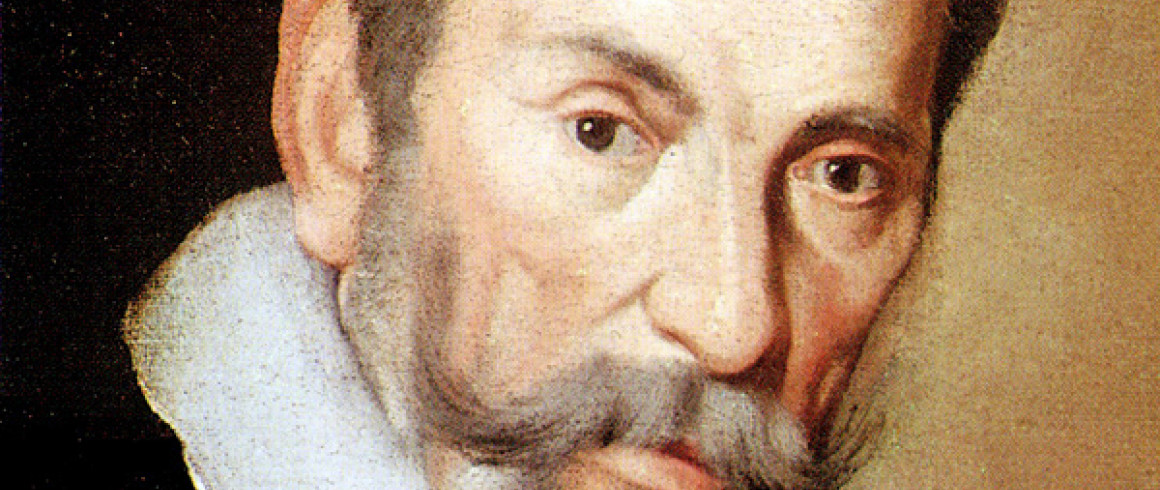Kenderdine Recital, ‘At the Tomb of the Beloved’, Sunday 12 March
 The Kenderdine Consort returns with a late-night concert on Sunday 12 March, featuring pieces of mourning written around the time of the foundation of the College Chapel.
The Kenderdine Consort returns with a late-night concert on Sunday 12 March, featuring pieces of mourning written around the time of the foundation of the College Chapel.
Claudio Monteverdi's Lagrime d’amante al sepolcro dell’amata (‘Tears of a lover at the tomb of the beloved’) was first published in his sixth book of madrigals (1614). It was dedicated to the young singer Caterina Martinelli, who had lodged in Monteverdi's house in preparation for his opera Arianna but contracted smallpox shortly before the first performance. The eighteen-year old had been a favourite of Duke Vincenzo Gonzaga, who arranged for her body to be interred in a marble tomb in the Carmelite church in Mantua. He also instructed Monteverdi to set the words by Scipione Agnelli in the poetic form of a sestina in her memory. Monteverdi responded with a musical outpouring so strikingly affective that it has been taken as a sign of his own profound grief at her passing.
Henry Purcell's Funeral Sentences comprise settings of words from the Anglican Burial Service as recorded in the 1662 version of the Book of Common Prayer. Purcell's settings were composed over a number of years; the last was written for the funeral of Queen Mary II in March 1695. The anthem, 'Thou knowest, Lord, the secrets of our hearts', was also sung at Purcell's own funeral held at Westminster Abbey later in the same year.
The recital will also feature Prince Carlo Gesualdo di Venosa's highly chromatic rendering of 'Tristis est anima mea' from the Tenebrae Responsories for Maundy Thursday, and Pelham Humfrey's setting of John Donne's poem, Hymn to God the Father.
The concert will take place in Pembroke Chapel from 9pm on Sunday 12 March. Admission is free, with a retiring collection in aid of the Syrian Refugee Crisis.
The Kenderdine Consort, a group of experienced early-music singers directed by Dr Sam Barrett, is dedicated to exploring the repertory of late 16th- and 17th-century vocal music. It is named in honour Dr Sidney Kenderdine (1935-2002), who came up to Pembroke in 1955 to read Natural Sciences. He took a PhD in Physics in 1963 and was appointed a Teaching Fellow at Pembroke in 1965. He taught Physics for three decades, as well as acting as Praelector of the College between 1969-1999. Dr Kenderdine was a tireless supporter of music in College, acting as President of the Music Society from 1971 until his death. He was deeply involved in Chapel music and gave recitals on the organ, which had had restored in 1980. He produced three CD’s of his performances on the organ, and endowed the Senior Organ Scholarship.
Image: Claudio Monteverdi by Bernardo Strozzi (1581-1644)
Source: https://commons.wikimedia.org/wiki/File:Claudio_Monteverdi_4.jpg
